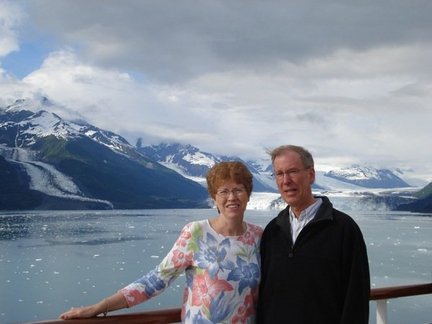Rev. John Doud is an ordained Congregationalist pastor from southern Michigan who joined us in 2015. He and his wife, Catherine, have been married for 39 years and love to travel. They enjoy spending time with their children and grandbaby. John received his BA from Albion College and a Masters of Divinity from Duke University. John has two Doctor of Ministry degrees. His first degree is from Drew University, where his dissertation subject was the revitalization of church deacons. He earned his second from McCormick Theological Seminary in Chicago. His doctoral thesis received the Hunt Award, the highest university merit award. The subject of his thesis focused on increasing church accessibility to people with disabilities. John has been a pastor since he was 22 years old. In his current position, he has been pastor for 34 years. He brings a wealth of experience, knowledge and humor to the life of our church. While John has long relationship with the Congregational Churches, he said he is looking forward to developing cooperative and productive relationships within the UCC. We look forward to a happy and productive relationship with our new friends John and Catherine Doud.
Rev. John’s Statement of Ministry
My ministry focuses on relationships. Though I am the “Ordained Professional” in this organization, I refuse to be set apart from the rest of the people in the church engaging in ministry as some sort of spiritual specialist. Ministry should be a partnership where the work is cooperative and where minister and people call each other to account. Rather than being set apart, we ought to be set together for a common vocation, sharing power as partners in the Congregational Way of Life.
It is essential for me to render the gift of my life’s experiences in worship and in service as minister, friend and co-worker. I believe in being there with the people, participating directly in life’s tragedies and contradictions. The aim of my ministry is not to convert everybody to my framework of Christianity- as if my way were the only way-but to encourage people to think for themselves in their own religious or secular settings. Through the influences of gratefulness and unconditional love, individuals can be called back to their better selves.
All of this is to say-whether we are Christian, Jewish, Muslim, Buddhist, Hindu, Pagan or of no religion at all-it is in the best interest of our world if we continue to search for a greater understanding of others which leads to unity. This is not a unity of belief, culture or tradition but a unity of love and respect which promotes education and communication with other religious and secular traditions. By humbling ourselves to our limitations, while simultaneously preforming anonymous acts of service, fostering cooperation and concern for all living beings in this planet Earth, we can become a genuine community of faith, hope and peace celebrating the Holy Name through acts of kindness and love.
My ministry focuses on relationships. Though I am the “Ordained Professional” in this organization, I refuse to be set apart from the rest of the people in the church engaging in ministry as some sort of spiritual specialist. Ministry should be a partnership where the work is cooperative and where minister and people call each other to account. Rather than being set apart, we ought to be set together for a common vocation, sharing power as partners in the Congregational Way of Life.
It is essential for me to render the gift of my life’s experiences in worship and in service as minister, friend and co-worker. I believe in being there with the people, participating directly in life’s tragedies and contradictions. The aim of my ministry is not to convert everybody to my framework of Christianity- as if my way were the only way-but to encourage people to think for themselves in their own religious or secular settings. Through the influences of gratefulness and unconditional love, individuals can be called back to their better selves.
All of this is to say-whether we are Christian, Jewish, Muslim, Buddhist, Hindu, Pagan or of no religion at all-it is in the best interest of our world if we continue to search for a greater understanding of others which leads to unity. This is not a unity of belief, culture or tradition but a unity of love and respect which promotes education and communication with other religious and secular traditions. By humbling ourselves to our limitations, while simultaneously preforming anonymous acts of service, fostering cooperation and concern for all living beings in this planet Earth, we can become a genuine community of faith, hope and peace celebrating the Holy Name through acts of kindness and love.


